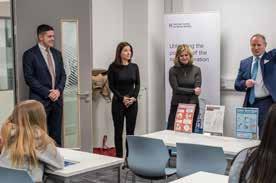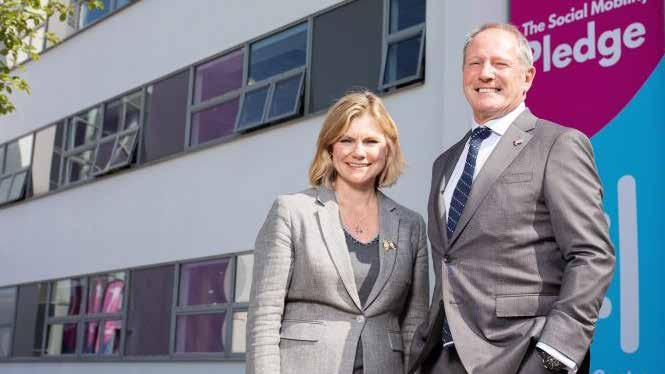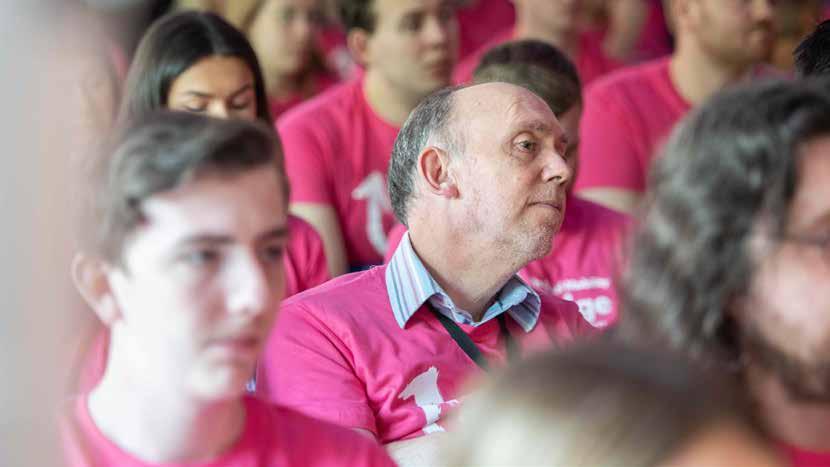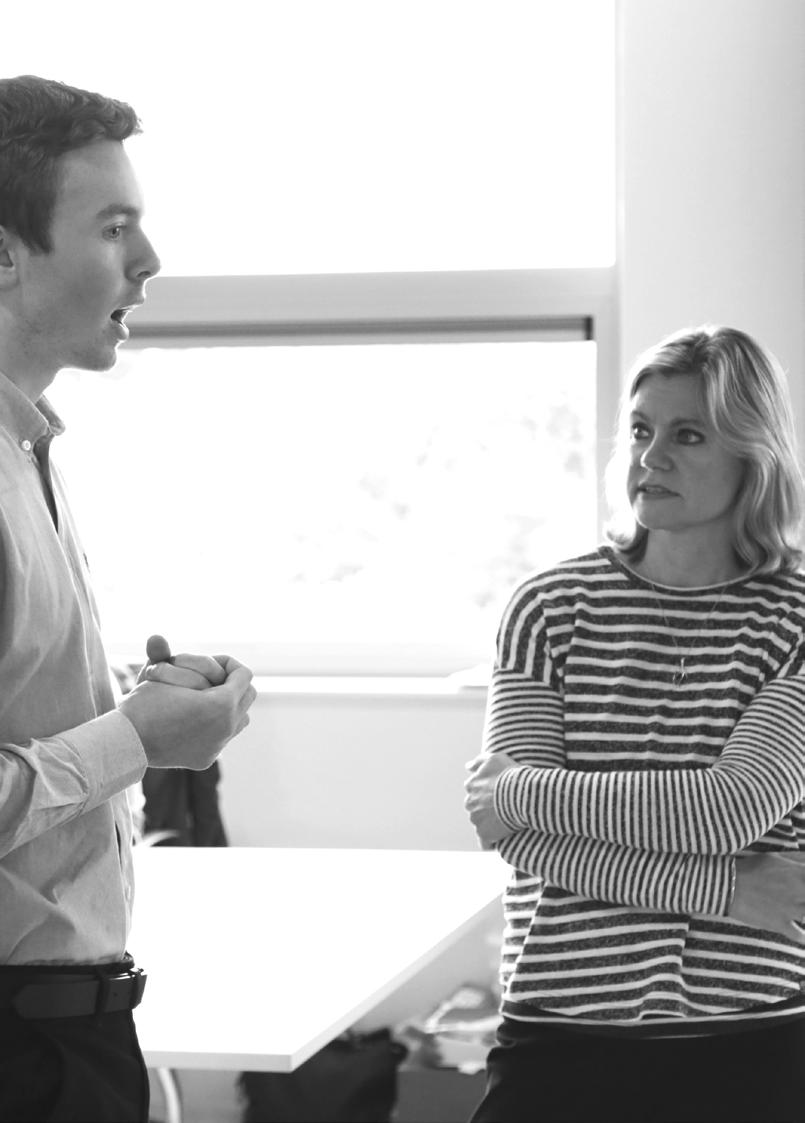
3 minute read
Foreword - Rt Hon Justine Greening
Foreword
As Education Secretary in 2016 I oversaw the launch of the Opportunity Area programme to boost local talent through improving education in twelve disadvantaged areas.
This approach united schools, universities, employers, councils, local health service and other community organisations together with the Department for Education to ensure a joined up, locally and nationally owned set of education priorities for the first time.
They were driven by an evidence base to ensure a focus on the right local education priorities and backed up with initial funding of £72m, followed up with a further £18m announced in 2020.
The scheme identified that for too long education initiatives had been pushed out nationally from Whitehall with an unrealistic expectation that they would have a universal reach, somehow working and having impact in the same way even in very different communities.
It was predicated on a firm principle that less privileged communities in places like Doncaster, Oldham and the North Yorkshire coast, had a huge amount of talent, yet too much of it was lost, not fully developed or having flowed out of those areas due to a lack of opportunities.
A Social Mobility Commission report in June 2020 highlighted that the Opportunity Area approach has been the only place-based social mobility strategy introduced by the Government. Though a programme to deliver generational change for the long term, just three years in results have already been showing a rate of improvement above the wider national average.
Part of its success has been its effectiveness in joining up all stakeholders together at a local level to deliver what that particular area needs. True Potential is well versed in harnessing this collaborative approach to improve social mobility.
Its work with the Harrison Centre at the Beacon of Light in Sunderland, for example, as set out in this report, shows what can be achieved when a highly successful business that is an opportunity creator teams up with community stakeholders to identify and nurture talent from traditionally hard-to-reach places. The sports and education facility is home to the Harrison Centre for Social Mobility, the charitable arm of True Potential created by its chairman David Harrison and chief executive, Daniel Harrison. Every year it works with hundreds of young people to provide the tuition and training they need to help them grow in confidence and secure a job.
The approach marries up both big picture strategy, which plots out the career journey of an individual and its likely barriers, and attention to detail – recognising and addressing those circumstantial challenges that could derail the social mobility path.
Furthermore, in the coronavirus crisis, this work was stepped up, with tutors at the Harrison Centre going out into communities to deliver coursework to ensure a smooth continuation of education.
The pandemic means that those delivering education face a pivotal year ahead, as they deal with the mass disruption to schedules and exams.
But out of the chaos has come some improvements to the way we do things, including a better mastery of technology to connect with educators and pupils. It is imperative that the progress made on the social mobility front in recent years is not reversed in this difficult period.
The UK-wide work David Harrison and I have witnessed since we co-founded the Social Mobility Pledge in 2018 gives me great optimism that Pledge signatories will continue their efforts to close the opportunity gap.
The challenge now, however, is awakening more businesses to the very real benefits of embracing social mobility. We must show them that social mobility belongs in the boardroom and not the marketing suite.
Current conditions mean opportunity creation, talent development, more diverse decisionmaking and new ideas are imperative for survival. All of these can come with a commitment to social mobility. Our task now is to spread this message and I hope this report into one of our earliest signatories helps this cause.
Rt Hon Justine Greening
Co-founder of the Social Mobility Pledge & Former Education Secretary










